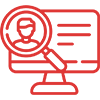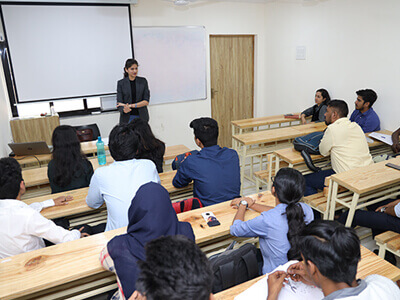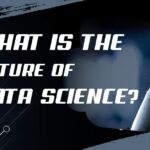
Masters
Masters in Data Science and Business Analytics is a 2 years full time postgraduate course that facilitates one to learn technical skills and practical insights to Data Science. The aim is to provide students with the technical and analytical skills required for acquiring, managing, analyzing and extracting insight from data.
The program combines theory and practice to enable graduates of the program to meet the demands of the data-driven economy of the future.
The program aims at:
- Providing students with a strong mathematical and statistics foundation that will enable them to appropriately formulate models and apply optimization techniques for data analyses challenges.
- Preparing them to be able to communicate technical ideas effectively through both oral presentations and written reports.
- Enabling students to assess the level of privacy and security of a technical solution to a data science problem.
Key highlights

University of Mumbai
Globally recognised degree from the prestigious 160 years old University of Mumbai. Campus placed at renowned Patkar-Varde college having ‘A+ Grade’ by NAAC.

Industry Experts
Faculties from industry and academia provide a perfect amalgamation of theory and real-life case studies for analyzing and extracting insight from data.

Scholarships
Financial aid available for eligible students in the form of scholarships upto 30% and pay after placement for academically bright students.

100% Placement Assistance
The placement cell has been set up to guide students to communicate technical ideas effectively, help them in resume building and assist them with job placement.
Programming softwares / tools covered
Training Methodology
“We believe those who advance the furthest in life tend to be those who acquire knowledge at both ends of the spectrum and acquire it in a variety of ways.”
Classroom Learning
Theory
As a data scientist, your ability to build reliable and efficient models that can be applied to real-world problems depends on how well you know your theoretical concepts.
Practical
Data science is a very hands-on and practical field that requires a solid foundation in programming and visualisation skills. Practical subjects like Python, SQL and Power BI in the syllabus helps gain this expertise.

Application Based Learning

Case studies
Data Science is all about extracting insights from the data and applying it to your problems. Working on real-world use cases and complex business scenarios prepare you for transitioning from academics to employment.
Industry connects
Data Science experts interact with the students to give them an overview about the Data Science industry, its career opportunities, salary packages, scope for future & the skills that will get them hired.
Experience based Learning
Internships
Internships transforms a student into a fully-trained industry executive with real-time exposure producing highly confident and productive trainees for the Industry with an opportunity to put them on a successful career path.
Projects
Project Based Learning is a teaching method in which students learn by actively engaging in real-world and personally meaningful projects and develop deep content knowledge as well as critical thinking, collaboration, creativity, and communication skills.

Eligibility Criteria
Open for students of all streams (Science/Commerce/Arts) who have a keen interest in statistics, programming and data analysis.
There are two ways to apply for the course:
Option A
Cleared graduation (Statistics/Computer Science/IT) with 60% and above
Option B
Cleared Quantitative Aptitude Test (QAT) and Personal Interview round.
Course Syllabus
This semester introduces students to statistical analysis and several programming tools, data visualisation to transform and clean the data and database management to create, retrieve, update and manage data.
Paper title
- Database Management Systems
- Big Data architecture and ecosystem
- Statistical Methods
- Data Visualization – Using Power BI
- R Programming
- Python Programming
| Semester I | ||||
|---|---|---|---|---|
| Course Code | Course Type | Course Title | Topics Covered | Credits |
| PUSDSBA 101 | Core Subject | Database Management Systems | INTRODUCTION TO DBMS, , Data Models, Relational Data Model, Database Management, Conceptual Database Design, Relational Database, ERto-Relational Mapping, RDBMS, StructuredQueryLanguage, Data Retrievals and Joins, ADVANCEDQUERIES AND DATABASE OBJECTS, SECURITYPRIVILEGES, SET OPERATORS &DATETIMEFUNCTIONS, ADVANCED SUBQUERIES, DatabaseTransaction, Optimization and Normalization, Advanced Database Concepts | 2 |
| PUSDSBA 102 | Core Subject | Statistical Methods | Statistical Method, Distribution and Collection, centraltendency, measures of dispersion and moment, Probability, moments, median and mode, Permutation ,Combination, Bayes theorem, RandomVariable, Univariate, Mathematical Expectation&Theorem on Expectation, Discrete distributions, Continuous Distributions, Sampling TechniquesandCentral Limit Theorem, Methods of Estimation, Hypothesis Testing | 2 |
| PUSDSBA 103 | Core Subject | Big Data architecture and ecosystem | Big Data and its importance, IntroductiontoHADOOP,HADOOP Architecture, HADOOP ecosystemandyarn,Data Serialization, Job Tracker, Task trackers,HadoopMapReduce Paradigm, New Features NameNodeHighAvailability, HDFS Federation, NameNode and DataNode | 2 |
| PUSDSBA 104 | Core Subject-Practical | Data Visualization – Using Power BI | BI Reporting, parts of Power BI, architectureof PowerBI, Types of Filters in Power BI, Power BI Desktop,Data Transformation, Functionalities of QueryEditor, M-Code , Introduction To Data Modelling, Visuals and its formatting, Calculated Column&Measures, Filters, Page Navigation and Rowlevel Security (RLS), Introduction to DAX | 2 |
| PUSDSBA 105 | Core Subject | R Programming | Introduction to R, CRAN and R Studio, DataManagement in R, Data Visualization, GraphicsinR,Statistical Inference,Data Types and RObjects, Conditional Statements & Looping, Functions inR, Data Manipulation in R, Data Interface, Regular Expressions | 4 |
| PUSDSBA 106 | Core Subject | Python Programming | Introduction to Python, String Manipulation, Functions,Regular expressions Match function, Lists, TupleandDictionaries, Basic Syntax Variable and DataTypesOperator,Lists, Tuple and Dictionaries,Conditional Statements & Looping, Global and local variables,Working with CSV files and Numpy, Introduction to Pandas, Data visualization | 4 |
| Total Credits | 16 | |||
This semester focuses on Machine Learning that automates analytical model building. Students learn to work on big data and advanced SQL to systematically
extract information and draw insights.
Paper title
- Modelling Techniques
- Machine Learning
- Distributed Processing using HADOOP
- Advanced SQL
- Project Work
- Business Communication- II
| Semester II | |||
|---|---|---|---|
| Course Code | Course Type | Course Title | Credits |
| PUSDSBA 201 | Core Subject | Database Management Systems | 2 |
| PUSDSBA 2P1 | Core Subject-Practical | Machine Learning - Practical | 2 |
| PUSDSBA 202 | core Subject | Distributed Processing using HADOOP | 2 |
| PUSDSBA 2P2 | Core Subject-Practical | Distributed Processing using HADOOP – Practical | 2 |
| PUSDSBA 203 | Core Subject | Advance SQL | 2 |
| PUSDSBA 2P3 | Core Subject-Practical | Advance SQL Practical | 2 |
| PUSDSBA 204 | Core Subject | Modelling Techniques | 4 |
| PUSDSBA 205 | Core Subject | Business Communication | 4 |
| PUSDSBA 206 | Core Subject | Project Work | 4 |
| Total Credits | 24 | ||
This semester covers time series forecasting and next generation databases using a high-level language suitable for data science. Students practice examining large pre-existing databases in order to generate new information.
Paper title
- Time Series Analysis and Forecasting
- Next Generation Database
- Web and Social Media Analytics
- Latest Trends in Internet Technologies
- Data Mining and Warehousing
| Semester III | ||||
|---|---|---|---|---|
| Course Code | Course Type | Course Title | Topics Covered | Credits |
| PUSDSBA 301 | Core Subject | Time Series Analysis and Forecasting | Various Aspects of Time Series, Economic time series, discrete parameter stochastic process, stationaryprocesses, estimation of mean, auto covariance andautocorrelation functions, Properties &Trends inTimeSeries, Application of Moving Average Method, TimeSeries, Exponential Smoothing, Moving average, Introduction to ARIMA, Box Jenkins Models, Introduction to Forecasting | 2 |
| PUSDSBA 302 | Core Subject | Next Generation Database | Big Data, SQL, Introduction to NOSQL, Basics NOSQLStorage Architecture, CRUD operations, WebFramework, Web Application with NOSQLandMongoDB, MongoDB Data Model, MongoDBShell, MongoDB Architecture, MongoDB Storage EngineandUse cases, MongoDB Limitations and Best Practices, SSD and In-Memory Databases &jQuery, JSON | 2 | PUSDSBA 303 | Core Subject | Web and Social Intelligence | Introduction to web analytics, Google Analytics, Pagesand Landing Pages, Case Study, Google Analytics, Audience report, Behavior report, Converstion report, traffic, Adword, searchcontrol, Google campaign, social, cohort analysis, demographs, navigating Google Analytics Basicmetrics, language information Technical reports Benchmarking, Bounce Rate, Google Analytics Acquisition andChannelReports, Goals, Google Analytics Conversion. | 2 |
| PUSDSBA 305 | Core Subject | Data Mining and Warehousing | Introduction to Data Mining, KDD Process, Real TimeCase Studies, Data Warehouse, OLTP vs OLAP, DataPre-processing, Data Mining (Association Rule) &Apriori Algorithm, Data Mining (FP-growth Algorithm), Data Warehousing, Data Warehouse Architecture, DataWarehouse Models. | 4 |
| PUSDSBA 306 | Core Subject | Latest Trends in Technology | Defining IoT, Characteristics of IoT, MACprotocol, Domain specific applications of IoT, Implementing IoT concepts with python, Physical designof IoT, Type of IoT Protocols, IoT communicationModel, IoT Enabling Technologies, Machine -to- Machine (M2M), Software-Defined Networking(SDN), Network Function Virtualization (NFV), MediumAccessControl, Design Challenges, Embedded Systems, Bigdata analytics of IOT. | 4 |
| Total Credits | 14 | |||
In this semester students learn to apply contemporary computing technologies, such as deep learning, Natural language processing and Cloud Computing, to solve practical problems characterized by big data.
Paper title
- Programming in Scala and Spark
- Principles of Deep Learning
- Natural Language Processing
- Cloud Computing and Application
- Image and Video Analytics
- Project work – Electives
- Finance Analytics
- Marketing Analytics
- HR Analytics
| Semester IV | |||
|---|---|---|---|
| Course Code | Course Type | Course Title | Credits |
| PUSDSBA 401 | Core Subject | Programming in Scala and Spark | 2 |
| PUSDSBA 4P1 | Core Subject-Practical | Programming in Scala and Spark - Practical | 2 |
| PUSDSBA 402 | core Subject | Principals of Deep Learning | 2 |
| PUSDSBA 4P2 | Core Subject-Practical | Principals of Deep Learning - Practical | 2 |
| PUSDSBA 403 | Core Subject | Cloud Computing | 2 |
| PUSDSBA 4P3 | Core Subject-Practical | Cloud Computing - Practical | 2 |
| PUSDSBA 404 | Core Subject | Information Governance and Data Analysis | 4 |
| PUSDSBA 405 | Core Subject | Elective (Marketing/Finance) Analysis | 4 |
| PUSDSBA 406 | Core Subject | Internship | 4 |
| Total Credits | 24 | ||
















